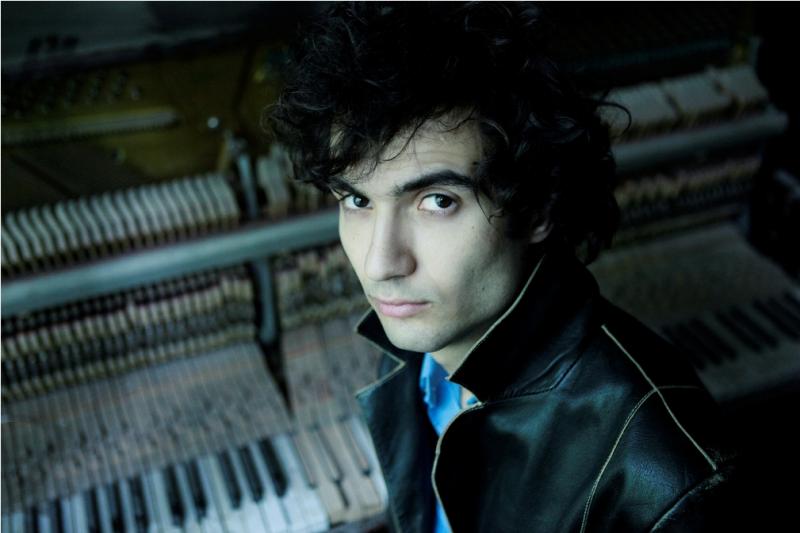
Tigran’s parents – his father was a jeweller and his mother a clothing designer – would queue at five in the morning for hours for bread of dubious quality. “When the electricity came on, my sister would start crying as it was so unusual,” he recalls. The first music he fell in love with in the middle of this post-apocalyptic atmosphere was heavy metal, and he says he still loves Meshuggar, the Swedish Death Metal band (authors of “the heaviest songs ever written – rhythmically, it’s insane”) as much as Ravel or Thelonious Monk.
He was enrolled at a classical school aged five. “For years it was just a chore. My mum made me practise, but as soon she turned away I started improvising and coming up with cheesy songs.” While most classical musicians don’t improvise “it was my thing, I didn’t even know what jazz was. For me improvising is the deepest music, it’s where everything starts.” In his teens, a jazz-loving uncle introduced him to pianists like Fats Waller. Tigran has a hand-span which reaches from C to the E flat an octave-and-a-bit above, which makes it that much easier to play the minor, melancholy chords that infuse his music.
When he was 16, his parents moved to Los Angeles to give their two children (Tigran’s sister is a painter and sculptor) better artistic opportunities. Tigran began to win a series of piano competitions and met saxophonist Ben Wendell and drummer Nate Wood, who still play with him today.
Read also
The other reason you can tell Tigran is on a vertiginous ascent is that fellow jazz pianists like Herbie Hancock, Chick Corea and Brad Mehldau have all raved about him, and he recently made his TV debut on Later With Jools (when was the last time you saw solo jazz piano on that programme?) He was even played on theartsdesk radio show.
His last album The Fable (see video, next page), is mainly solo piano, with snatches of singing and humming, and is an immensely poised masterwork with sparkling melodies, veering between introspective romanticism and expansive virtuosity. Of all his albums, this one has the most of his native Armenian influence. There’s a take of the standard “Someday My Prince Will Come” and an Armenian medieval hymn, with most of the rest being new compositions, improvising around Armenian scales, which gives the whole a certain mysterious East-West quality.
Of his spiritual search he says ‘Every time I think about it I realise I know nothing.’
Geoff Dyer in his jazz book But Beautiful suggests that the future of jazz will come from such fusions of culture, and this is an exemplary specimen. One of the most enigmatically beautiful tracks is “The Spinner”, a hauntingly melodic composition by the mystic (and conman, depending on your point of view) George Gurdjieff arranged by Thomas de Hartmann (see video, next page). Gurdjieff, the author of Meetings With Remarkable Men, would hum his tunes to the pianist Hartmann; for Tigran it is “absolutely timeless, incredible music.” Tigran says he believes in God, and like his musical “gods” Herbie Hancock and Wayne Shorter is also interested in Buddhism. Of his spiritual search he says “Every time I think about it I realise I know nothing.”
Now he is becoming an international star, he is feted back in Armenia, but is depressed by the Armenian pop music – “Some of the songs include Armenian instruments, but it’s really rubbish.” He does rate the other best known musician in Armenia, Djivan Gasparian (who plays the oboe-like duduk), who he says has “bardic” qualities.























































